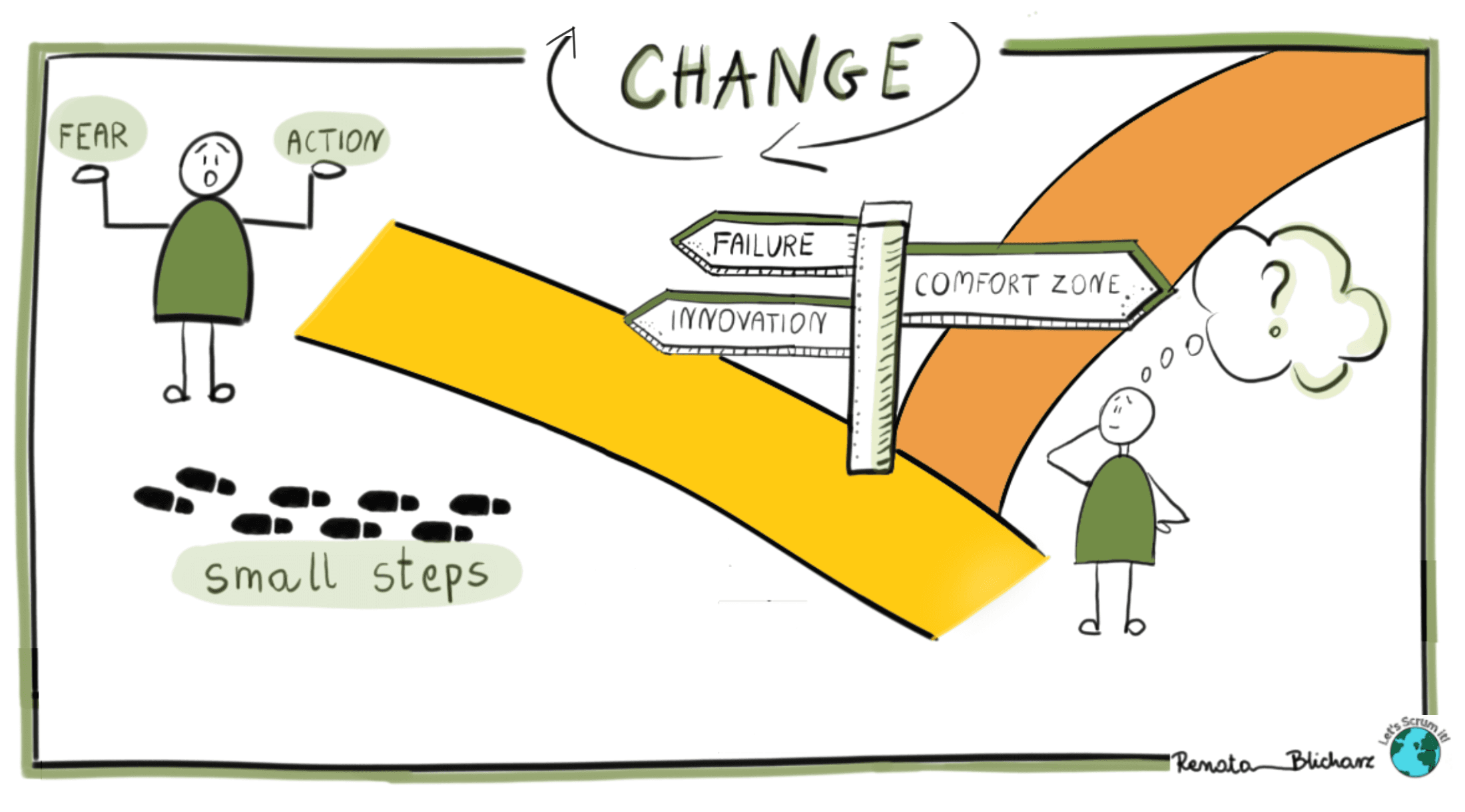
How to adapt to change?
April 25, 2021 • 5 min to read
People frequently underestimate how even small changes can affect their lives. Changes are unavoidable, so that we need to be ready for them. In this post you can find few things that can help you in the adaptation process.
Table of Contents
Introduction
It’s been a while since I wrote the last post here. I’ve started thinking about it - how did it happen that I stopped writing? There are many reasons, but today I would like to focus on one that was the most important: change.
People frequently underestimate how even small changes can affect their lives. In my case I changed a job, so it was a significant disruption of my life. I had to get out of my comfort zone and face the new environment, people & standards again.
I have a love-hate relationship with change. I am always super excited before it comes. When it really happens, I get stressed and overwhelmed. Then I experience new things, learn and at the end I am really happy that I welcomed change in my life.
I strongly believe that one of the Agile values:
Responding to change over following a plan
can be applied not only in a business, but also in a personal life context. Nowadays, no matter how much we try, we will not be able to avoid changes. They will be happening even if we will have wonderful fully-detailed plans. The question is not if they happen, but how we will respond when they do.
![]()
How to adapt to change?
There are few things that I believe can help when we try to adapt to change in both scenarios - business & personal life.
1. Don’t be too hard on yourself - failure is inevitable
Being hard on myself - that’s a mistake that I still make, but I try to minimize it every time when change comes. No matter how much we try, we will fail and we will be making mistakes. Blaming ourselves or anyone else doesn’t bring any value but makes the process even more difficult.
Accepting that issues will appear can help to change the focus from mistakes to small achievements during the process of change. That on the other hand will boost up your energy level and help you to deal with difficult parts.
Whenever you try to adapt to change and make mistake, keep the words of Brene Brown in your mind:
There is no innovation and creativity without failure. Period.
2. Start from small steps & be consistent
I started this blog by developing a simple habit - writing a minimum 15 minutes daily. That was back when I was working from home every day and I was always writing at the same time. When changes came into my life (e.g. working partially in the office) I had to start development of my habits again. I must admit - it is hard! I know that what really helps me adapt to change are small steps. These 15 minutes of writing were no longer easy for me due to different circumstances in my life. I had to approve it and figure out my starting point - the smallest steps possible like writing even a few words or thinking about what I would like to write about.
In the business it’s exactly the same. When change comes, not everything will be working as we planned, but we need to slowly adapt - step by step. There is one sentence that I saw so many times in Scrum/Agile materials and I believe it is really important:
consistency reduces complexity
Even the smallest steps can help to develop habits if we will be taking them consistently at the same time and place.
![]()
3. Feel the fear & take action anyway
It is OK to be afraid of change and it’s OK when you feel overwhelmed. It doesn’t matter if we are talking about your personal life here or about change in your company. We are humans and feeling fear is our natural and primitive human emotion. It is a survival mechanism that alerts us to the present of danger.
When we experience change, it is quite possible that we will feel fear. It is normal, but it is important to not be frozen in fear. You need to take action anyway! That is the only way to adapt to change - by taking action. Fear will be still present in your life, so get used to it and learn how to live with it and do not let it stop you from action.
![]()
Summary
I know that there are many more ideas that can help you adapt to change, but I believe that these 3 points are the most important.
Remember:
You will fail, but that’s part of the process. Don’t be too hard on yourself.
Adapt to change by doing small steps and be consistent.
Get used to feeling fear and take action anyway. Let me know what you find the most helpful in adapting to change. Feel free to add comments here or start a discussion on LinkedIn/ Twitter.
Would you like to read more about education?
Sign up for the Newsletter & join Let's Scrum it community!